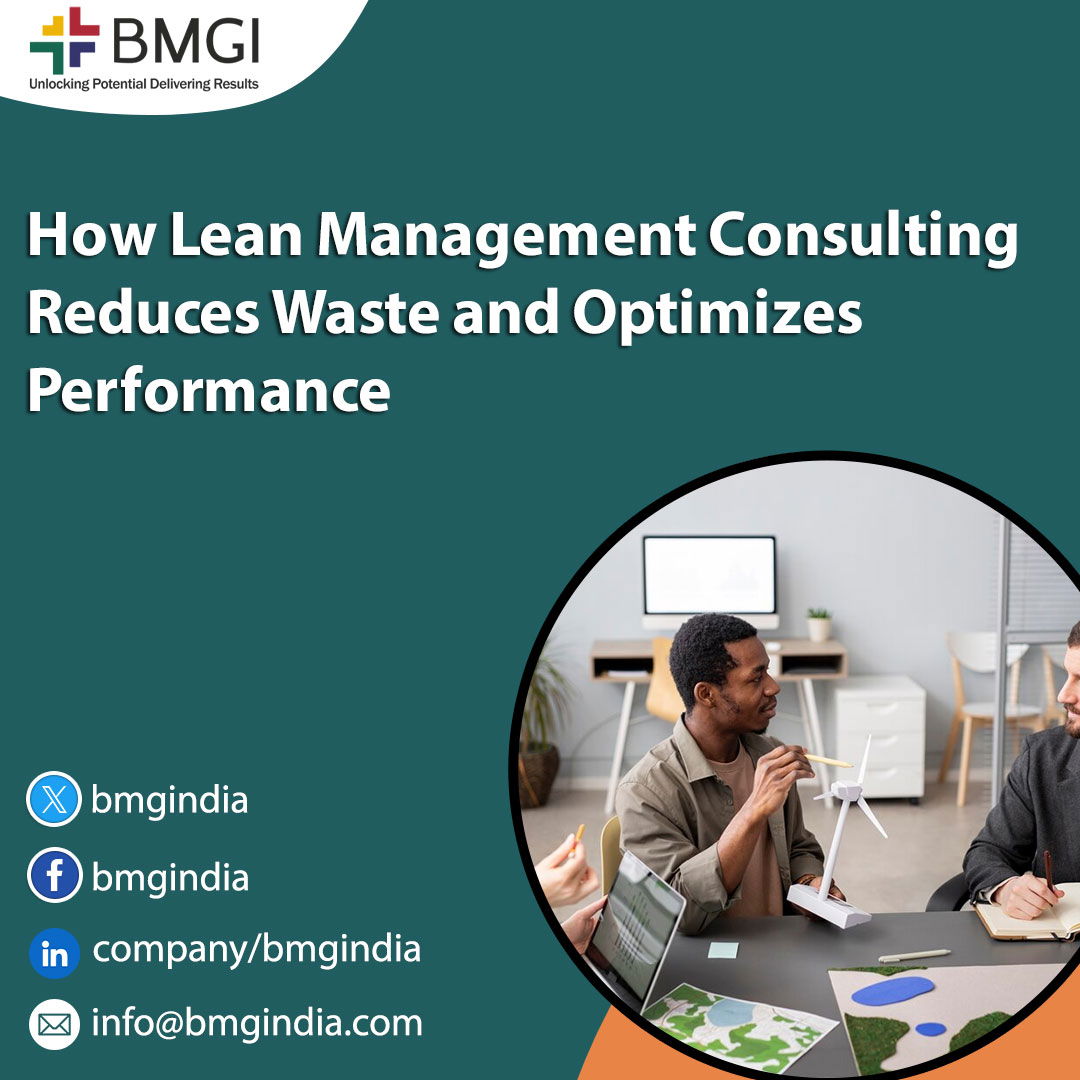How Lean Management Consulting Reduces Waste and Optimizes Performance
In an era where efficiency and adaptability are crucial for success, organizations are increasingly turning to Lean management consulting to streamline operations and achieve sustainable growth. Lean management focuses on identifying and eliminating waste, enhancing process efficiency, and driving performance improvements across all levels of an organization. Consulting firms play a vital role in guiding businesses through the Lean transformation process, ensuring lasting results and operational excellence.This article explores how Lean management consulting empowers organizations to minimize waste, improve efficiency, and maximize performance across industries.
What is Lean Management?
Lean management is a systematic approach to optimizing processes by eliminating non-value-added activities—commonly referred to as waste—and creating more efficient workflows. Its core principles include:
- Defining Value: Understanding what customers perceive as valuable.
- Mapping the Value Stream: Identifying all steps in the production or service process and eliminating those that do not add value.
- Creating Flow: Ensuring a smooth and continuous workflow across operations.
- Establishing Pull: Producing only what is needed, when it is needed, to avoid overproduction.
- Pursuing Perfection: Continuously improving processes to achieve better efficiency and quality.
Lean management consulting helps businesses adopt these principles, tailoring them to their specific challenges and goals.
How Lean Management Consulting Reduces Waste
Waste in business processes can take many forms, such as overproduction, excess inventory, unnecessary motion, and defects. Lean management consulting systematically identifies and eliminates these inefficiencies, enabling organizations to achieve higher productivity.
- Identifying Wasteful Practices:
Lean consultants conduct comprehensive process assessments to uncover areas of waste. Examples include:
- Overproduction: Manufacturing more than the demand requires.
- Waiting: Downtime caused by delayed materials or approvals.
- Excess Motion: Unnecessary movement of employees or materials.
- Streamlining Workflows:
By mapping value streams, consultants identify bottlenecks and propose streamlined processes. For example:
- Introducing automation to reduce repetitive tasks.
- Restructuring workflows to improve communication and handoffs.
- Improving Resource Utilization:
Lean management consulting ensures that resources—such as materials, labor, and equipment—are used efficiently, reducing waste and minimizing costs.
Enhancing Process Efficiency with Lean Consulting
Lean consultants work closely with organizations to refine their processes and improve overall efficiency. Key methods include:
- Standardizing Operations:
Standard work procedures reduce variability and ensure consistency in output, leading to fewer errors and higher quality. - Implementing Visual Management Tools:
Tools like Kanban boards help teams track progress, prioritize tasks, and maintain focus on value-adding activities. - Encouraging Cross-Functional Collaboration:
Lean consultingfosters collaboration across departments, ensuring alignment and eliminating siloed operations that hinder efficiency.
Boosting Overall Performance
Lean management doesn’t just improve efficiency—it also drives measurable performance improvements across key business areas.
- Enhanced Quality:
By focusing on eliminating defects and standardizing processes, it ensures consistently high-quality products or services.
- Increased Speed:
Streamlined workflows and reduced delays enable faster delivery of products or services to customers. - Cost Savings:
Reducing waste leads to lower operational costs, improving profitability without compromising quality.
- Employee Empowerment:
Lean principlesencourage employees to identify and solve inefficiencies, fostering a culture of continuous improvement.
The Benefits of Lean Management Consulting
Engaging Lean management consultants provides organizations with:
- Expert Guidance: Access to proven methodologies and tools tailored to their specific needs.
- Data-Driven Insights: Consultants use performance metrics to track progress and guide decision-making.
- Sustainable Improvements: Lean principles create a foundation for continuous improvement, ensuring long-term success.
- Competitive Advantage: Efficient operations and superior quality enable businesses to stand out in the market.
Conclusion
Lean management consulting is a powerful tool for organizations seeking to reduce waste, enhance efficiency, and achieve operational excellence. By adopting Lean principles and practices, businesses can streamline their operations, improve resource utilization, and boost overall performance.
For organizations looking to stay competitive and achieve sustainable growth, partnering with Lean management experts offers a proven path to success. Whether in manufacturing, healthcare, or logistics, Lean consulting helps businesses realize their full potential by focusing on value creation and continuous improvement.

